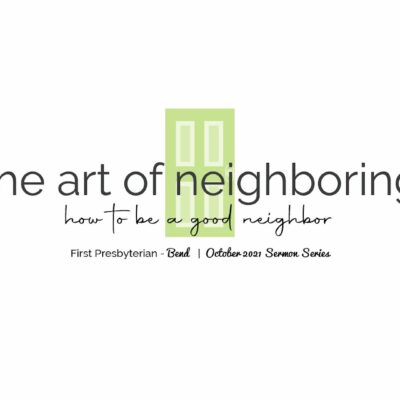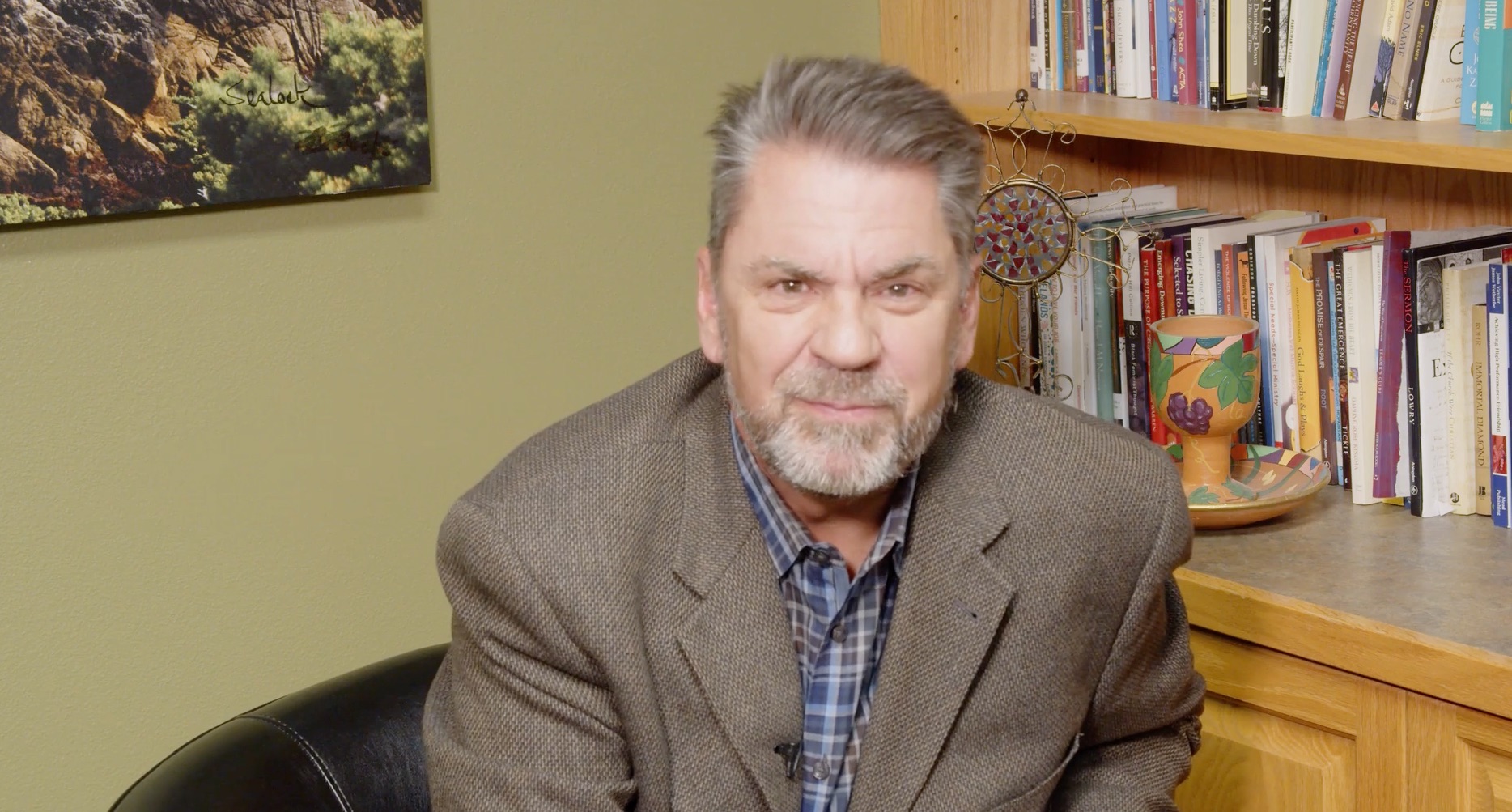Oct 24th, The Great Commandment, Vaccinations, Exemptions…oh my! with Rev. Dr. Steven Koski
A Part of the Series:
Rev. Dr. Steven Koski
Other Articles in:
Oct 24th, The Great Commandment, Vaccinations, Exemptions…oh my! with Rev. Dr. Steven Koski
I was recently asked my stance on religious exemptions for vaccination mandates. Now this was more of a philosophical inquiry and not a specific request, but it really gave me an opportunity to reflect, would I support a religious exemption for mandated vaccinations if asked?
Now, if you’re curious, the official stance of the Presbyterian Church USA, our denomination is this. It says, our theological commitments compel us to encourage and support vaccinations against COVID-19 for all people except those who are unable to receive the vaccination due to either age or medical condition, it says our faith calls us to love our neighbors and seek the common good, so we do not support religious exemptions.
On the contrary, our theological commitments compel us to urge all people who are able to be vaccinated against COVID-19.
Now that’s our denominational stance, everyone in this country is entitled to their strongly held political opinions.
But political opinions are not the same as a religious objection. Religious exemptions for mandated vaccinations must be based, it says, on a sincerely held religious belief. I mean, you need a theological reason to request a religious exemption.
There’s this tension, this tension that exists in our country between individual rights and freedom and what is best for the common good.
Now I’ve heard people who oppose vaccination mandates say God has given us the gift of freedom, the gift to exercise our free will, and it’s our duty to protect that freedom.
Now, this tension between individual rights and freedom and our common life together is at the center of so many conflicts right now, such as gun rights and the epidemic of gun violence. Now some will argue about the sanctity of the individual’s right to bear arms.
Others, like myself, will argue that gun violence is an epidemic and is a public health and safety issue that supersedes an individual’s rights.
From the moment the United States was born, our country has been locked in this battle between ensuring individual Liberty and freedom and protecting the common good.
So as people of faith, as followers of Jesus, what is our theological lens to help us wrestle with this tension? This tension between individual freedom and what serves the common good?
In our baptism. We’re told that we belong to God, but it doesn’t stop there. In belonging to God, we belong to one another. Mother Teresa reminds us that most of the violence and the suffering in this world results from forgetting that we belong to one another.
Yes, we are blessed with the gift of freedom.
But we’re not given this gift of freedom to serve ourselves. But to serve God’s purposes. As the writer Tony Morrison said, if you are free, your job, then is to free somebody else. As Dr. King said, no one is really free until all are free. I mean, no one wins in life until everyone has an opportunity to flourish.
In Genesis Twelve, God says to Abraham, you are blessed, but God doesn’t stop there, God says, you are blessed so that so that you will be a blessing to others, it says in Galatians 5:13. For you are called to freedom brothers and sisters, only do not use your freedom as an opportunity for the flesh (which essentially means to benefit yourself). But through love, serve one another.
In 1 Peter 2:16, it says, live as people who are free, not using your freedom as a cover up for selfish purposes, but living as servants of God.
We are not free to harm others.
During World War II in England, once Germany started bombing London, there was a strict mandated lights-out curfew after nightfall, because any light seen from above by enemy bombers was like a painted bullseye on targets below.
Imagine if you lived in a building and imagine if someone in your building refused to turn out their lights, proclaiming their freedom to do whatever they wanted to do in their own apartment.
Maybe they didn’t believe German bombers could fly that far. Maybe they received misinformation that they were safe and that the lights out curfew mandate was an overreach and unnecessary. So exercising their “freedom” to keep their lights on in their own apartment put everyone, including themselves, in harm’s way.
As followers of Jesus. That’s our lens.
How do we address the tension between individual rights and freedom and what serves the common good?
In Mark’s Gospel, a teacher of the law, an expert in the law, approached Jesus and asked, “Of all the Commandments, which is the most important”? Jesus answered, “The most important is this. ‘Hear, O Israel: The Lord our God, the Lord is one. You shall love the Lord your God, with all your heart, with all your soul, with all your mind, and with all your strength.'”
The second is this, love your neighbor as yourself. There is no other commandment greater than these. Well said teacher, the man replied. You are right in saying God is one, and beside God, there is no other. And to love God with everything you have and to love your neighbor as yourself is much more important than all burnt offerings and sacrifices.
When Jesus saw that the man had answered wisely, he said to him, you are not far from the Kingdom of God.
So in that passage, this teacher, this expert of the law, confronts Jesus asking of the 613 Commandments… That’s how many there were… 613 Commandments and laws, which one is most important? Now, as expected, Jesus first quotes the Shema from the book of Deuteronomy. Hear, O Israel: The Lord our God, the Lord is one. You shall love the Lord your God with all your heart, soul, mind and strength. Now every Jew knew and knows that, they memorized it. They kept it in their heart. They wore it in a little pouch around their wrist or their forehead. They nailed it to the front of the door of their house. They recited it. They taught it to their children.
They knew that God is one. Love God with everything in you.
And then what would have actually surprised everyone, including that teacher of the law is Jesus added a second commandment. This teacher of the law, he asked for one. What’s the one that’s most important? And he got two. You shall love your neighbor as yourself. Now that’s in the Bible, too, that’s actually in the Book of Leviticus. So that idea of loving your neighbor as yourself is actually not a new idea.
What’s unique is that Jesus puts them together. The love of God and the love of neighbor. Jesus puts them together in a way that makes them one commandment. That’s new, that’s radical, that’s something new that Jesus was introducing. Theologian Walter Brueggemann says Jesus creates a new moral benchmark and a new word. “Godneighbor”. To love God is to love your neighbor, and to love your neighbor is to love God. They’re inseparable.
You love God with everything in you.
When you love your neighbor as yourself, when you won’t accept any less for your neighbor’s well being and welfare, than you’re willing to accept for yourself and your family.
Think about that.
Now, if you look closely at this passage, Jesus linking loving God and loving your neighbor together, I mean, stunned this teacher of the law, this expert in the law so much that he actually seems to have a conversion experience right then and there. After hearing Jesus’ answer to what is most important, if you listen carefully, he now addresses Jesus as teacher.
He now calls him Rabbi, where before he was so focused on challenging Jesus, he didn’t even have the courtesy of addressing Jesus at all, which would have been extremely rude in that culture.
And now he calls Jesus Rabbi, the one whose feet you humbly sit at, to learn.
And now the teacher of the law says, you are right, Rabbi.
There is nothing more important than love for God and love for neighbor.
And they’re linked. To love God with everything we have is to love your neighbor as you yourself would want to be loved.
Now imagine the possibilities if, like the teacher of the law, more and more and more of us experienced a conversion of the heart and really understood that to love God is to love our neighbor. That it’s not about my God and my Jesus or my Salvation or my personal freedom and my rights.
We show our love for God and the way we live together in community where we understand that the opposite of love is not hate, but selfishness. Where we understand that no one really wins until everyone has a chance to flourish.
Imagine if we equated our love for God as not being willing to accept any less for our neighbors, especially our most vulnerable neighbors, than we would accept for ourselves and our family.
Do you remember that beautiful story that took place in the Special Olympics, where Danny, who lives with Down Syndrome was clearly going to win the 100 meter dash. He was way ahead nearing the finish line when he tripped and fell. Now the other runners, they had every right. They had every freedom to keep running and to win that race themselves.
Instead, all of the runners, every single one of them. When they got to the place where Dany had fallen on the track, they stopped.
They picked Danny up. They hugged him and they all held hands and finished the race together.
Imagine if we all played by those rules.
No one wins until everyone has a chance to win. And our job as people of faith, our job is to make the sacrifices necessary to help them win.
Just imagine some are arguing these days, arguing loudly that there’s nothing more important than our individual rights and freedom. In the lens of our faith, as followers of Jesus, there’s nothing more important than loving God with everything we have.
And we do that by loving our neighbors, especially our most vulnerable neighbors, and that we love them in the way that we would desire to be loved ourselves.
I read an article recently in The Atlantic by Silas House, reminding us all of the values that most of us were taught at some time and many of us have forgotten. He wrote, as a child in Eastern Kentucky, I often helped my grandmother work in our large garden lush with tomatoes, beans, Okra, potatoes, peppers.
Granny was born in 1909, 62 years before me, and as we hoed the long rows, I loved to hear her stories of living through the Great Depression and World War II. During the hard times in the 1930’s, Granny said neighbors banded together to help one another, pooling money to assist a destitute family or leaving food on the doorstep of a widow raising several children.
Granny would tell me, not everybody was selfless, but most of us tried our best. That’s what you do. That’s what you should always do. And my own parents, he said in this article, my own parents put these words into action.
They cut corners so that they could help less fortunate kids from my school or our Church.
I was taught to sacrifice my own comfort for the good of others, whether it be volunteering my seat to elders in a crowded waiting room, letting a pregnant woman go in front of me in the grocery line, or giving half my sandwich to a hungry classmate.
Now, honestly, I may not have always lived up to those standards, but I was taught to try, and I’m sure I’m not alone.
He goes on in this article to say sacrificing for the common good was something most of us were taught growing up.
And now, just a few decades later, I’m seeing people in my own hometown and all over the country thinking only of themselves.
They’re not just unwilling to make sacrifices for others. During a pandemic, they’re angry about being asked to. Friends. I wonder if the opposite of love is not hate but selfishness.
I really suspect I’m preaching to the choir this morning as, honestly, you inspire me every day and the way that I see you caring for our neighbors.
Maybe you don’t need to hear me say any of this.
All I know is there are many days where I’m just so tired, when I feel frankly defeated, when it all feels just too much. When I get so angry at the selfishness of others that I’m blind and don’t even see my own selfishness.
There are days I truly wonder. Does love really win?
It’s those days, I realize, like the teacher of the law in today’s story, that every single morning, I need a conversion of the heart.
I need God to create in me a heart cleansed of despair, cynicism, selfishness.
I need God to put a new and right spirit within me. I need to remember that we came from love. We are made by love.
We are here to love.
And every single morning, I need to give myself to this love, trusting that God’s love is able to do what our love can’t do. With so many distractions, trying to pull us this way and that way, every morning, we need a conversion of the heart to remember what is most important; to love God with everything we have by loving our neighbors, especially the most vulnerable and loving them in the way that we ourselves desire to be loved.
Friends, may we choose not to be exempt from the suffering and need of our neighbors.
May we be willing to meet our neighbors in their places of need and be willing to build the kind of communities where all are free and all can flourish?
Jesus said, do this and you will live.
May it be so.



